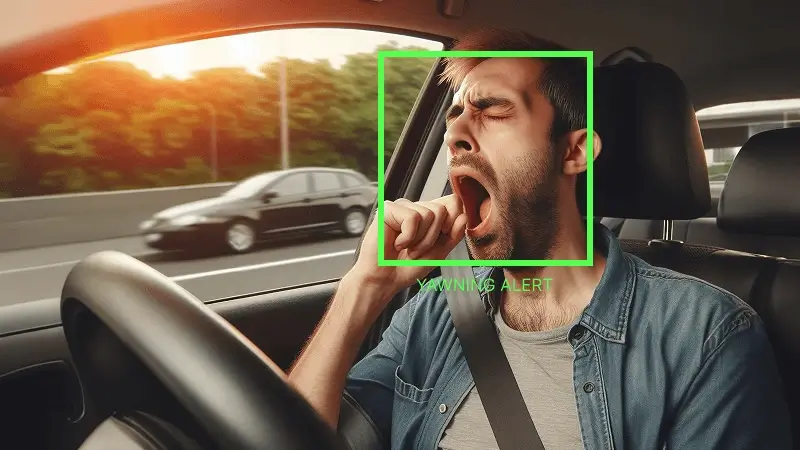Vehicles are no longer just measured in terms of horsepower or speed. Modern cars are becoming more connected with the next-generation technologies of Artificial Intelligence (AI) and Advanced Driver Assistance Systems (ADAS), allowing them to take decisions in real-time in emergencies. There are plenty of videos online where vehicle self-driving functions have overridden the driver to either save passengers or save pedestrians’ lives.
The world auto industry is in the midst of a technology revolution fueled by two revolutionary trends: the shift from internal combustion vehicles (ICVs) to battery electric vehicles (BEVs) and the swift development of advanced driver-assistance systems (ADAS) and autonomous driving technologies. What holds these trends together is a fierce preoccupation with intellectual property (IP). Automakers, semiconductor companies, and software developers are patenting aggressively to safeguard their advantage and create competitive niches.
In this blog, we’ll break down the tech and IP trends driving this evolution—looking under the hood of recent innovations in ADAS, AI, BEVs, and hybrid systems. We’ll also analyze the patent strategies of key players like Tesla, BYD, and Toyota, offering insights into who’s leading the charge and how the future of mobility is being shaped one patent at a time.
Current patent filing patterns show a drastic change from hardware focused patents to AI algorithms. Previous patent activity was around hardware components such as sensors, ECUs, and drivetrain mechanism. As cars become increasingly intelligent, we observe more patent filing around AI algorithms that increase the performance of existing hardware compared to creating new hardware itself. Over the last 12 months alone, there has been a 30% increase in worldwide patent filings for ADAS, particularly in sensor fusion and AI-based decision-making.
One of the best examples of this trend is Mobileye’s patent for crowd-sourced HD mapping, which leverages artificial intelligence to filter and improve real-time data gathered from millions of cars. Rather than creating more costly sensors, they’re creating more intelligent systems.
Similarly, NVIDIA is patenting IP in edge computing, enabling vehicles to compute on-board instead of trusting the data to cloud infrastructure. Not only is it minimizing latency, but it is also a key consideration for safety and a strategic shift towards intelligence-based autonomy.
It is an indication of a wider trend—one in which the value isn’t simply in the sensors, but in the extent to which the vehicle can understand and respond to the data they bring.
|
Fun fact: Over 60% of BEV patents now include AI for battery lifecycle management. It’s clear that the future of mobility is being written in code and protected by patents. |
Two of the largest players, BYD and Tesla, are embroiled in a fierce battle over intellectual property (IP) that will likely determine the mobility future. Though Tesla has traditionally been viewed as the tech upstart, BYD’s newfound success in international BEV sales and broad patent strategy indicate that it’s no longer merely catching up.
Tesla Dojo is an application-specific AI supercomputer created by Tesla to speed up training deep neural networks for its self-driving technologies. The supercomputer is used to process enormous quantities of real-world driving data gathered from Tesla’s worldwide fleet to enable quick advances in the firm’s Full Self-Driving (FSD) and Autopilot systems.
While BYD differentiates with a vertically integrated approach, providing end-to-end control from battery chemistry to final car manufacturing, Tesla does better in leveraging intellectual property to expand its production more efficiently and at lower costs.
Each has defined its own competitive edge, and no individual player was clearly the winner until now. However, the competition is still far from over, with both manufacturers leading the way in various fronts.

The automotive industry is undergoing a transformation driven not just by electric drivetrains or smarter software but by the strategic collaboration of technology and intellectual property. Whether it’s BYD’s vertically integrated battery empire or Tesla’s production-first mindset, one thing is clear: the future of mobility will be won not just in labs or on assembly lines—but in patent offices across the globe. As companies continue to innovate, those who combine deep tech with smart IP strategy will define the next era of automotive excellence.
As an established player navigating the evolving automobile landscape or a startup developing cutting-edge EV tech, your innovations deserve strong patent protection.
At Wissen Research, we have been offering top-notch intellectual property (IP), technology, and market research services to our global clients, including Fortune 500 companies, small enterprises, and onshore IP law firms.
Schedule a one-on-one meeting with our subject matter experts and discuss your project queries today!